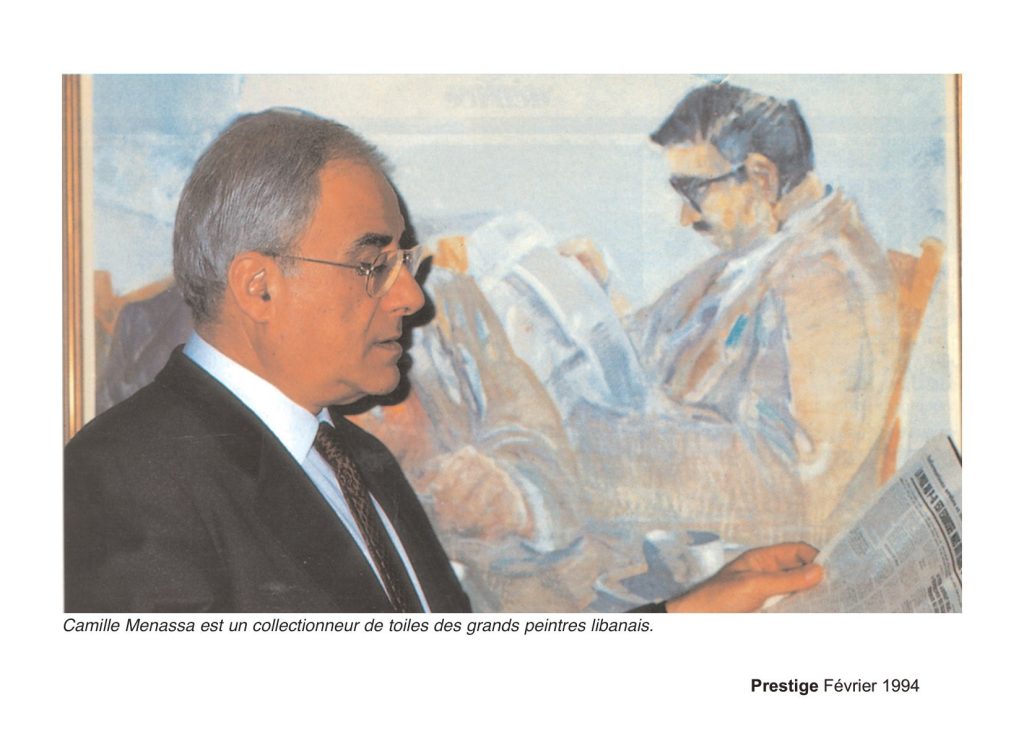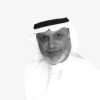Prestige no 9 -February 1994
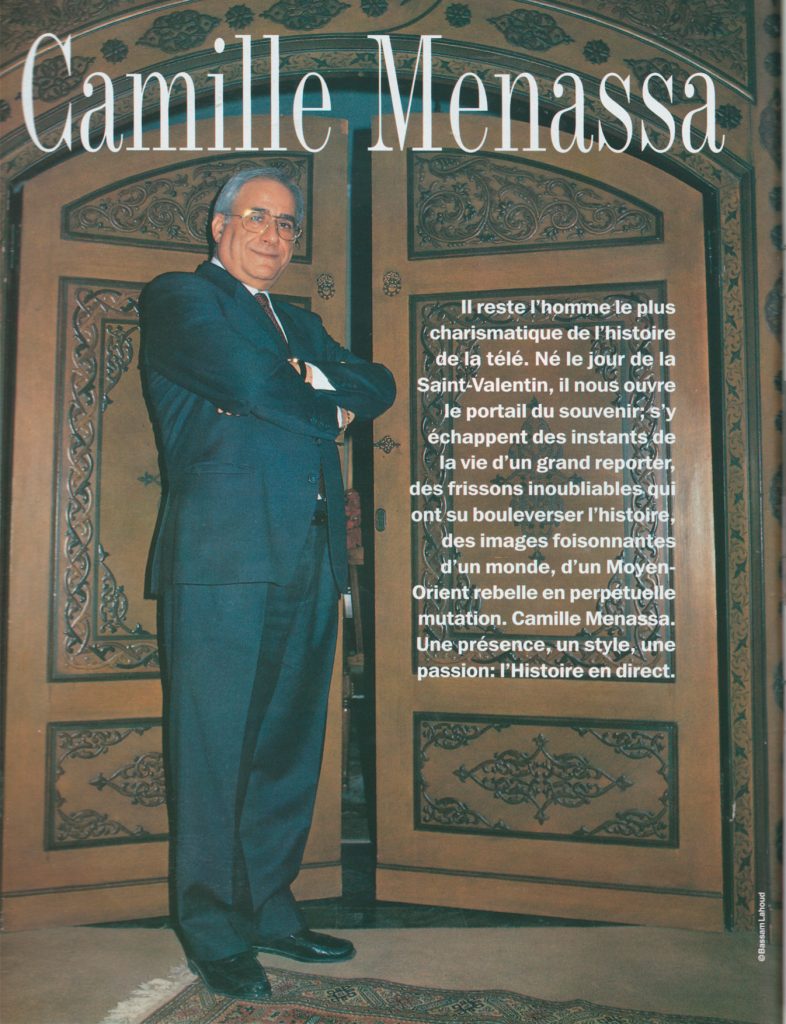
I admired radio speakers but dreamed of being a lawyer
Correspondent, editor, special envoy, columnist…there’s hardly a corner Camille Menassa hasn’t explored. It’s hardly surprising when you combine the finest sense of humor with the invariable presence of mind and petulance that define a true journalist. Camille Menassa can’t help caricaturing even her birth. “I was born on Valentine’s Day in a Chevrolet… My mother, on her way from Sidon to Tyre, felt the contractions along the way. For eight years, the Chevrolet representative would send me a tie decorated with automobiles as a souvenir”. The ancient port of Tyre. The scent of the orange trees in Sidon permeated his childhood. Phoenician and Roman ruins instilled in him a passion for history. “I admired the Radio London speakers from a very early age, but I dreamed of becoming a lawyer and practicing criminal law. Camille Menassa is working in a bank when Georges Naccache takes him to the offices of “L’Orient”. The first time he read his name in the headlines, for a report on the presidential palace in Baabda,” he recalls, “he couldn’t suppress his joy. In love with May Abdel Sater, who was to become his first wife, he found her a position at the Compagnie Libanaise de Télévision. He joined her a year later, in 1959. And so the story begins… Camille Menassa started out as a translator. In those days, translation was live, and there was no shortage of hilarious situations. “I was so easily carried away that I couldn’t refrain from slipping in inappropriate comments about the film’s hero at the same time”. One day, he adds so much that we even have to mute him without his knowledge. Camille Menassa then turns to the news.

Yemen was in turmoil. Iman Badr, overthrown by Abdallah Sallal, had taken refuge in the mountains. Menassa crossed the desert on a donkey to meet him. Saudi Arabia used its photos to prove to the UN that the Iman was not on Saudi territory.
This period is full of memories. Yemen was in turmoil. Iman Badr, overthrown by Abdallah Sallal, had taken refuge in the mountains. Menassa crossed the desert on the back of a donkey to meet him. “I met the New York Times correspondent there. I acted as translator between him and the Iman. We shared the same tent and the little food we had. At night, we were forced to take refuge in caves to avoid the shelling. Saudi Arabia used our photos to prove to the Security Council that the Iman was not in Saudi territory. It was the most exciting adventure of my life”. Camille’s career was punctuated by some of the most extraordinary reports. Hong Kong, Taiwan, Mexico, Leningrad, Moscow, Tumoy Island bombed daily by Communist China… He signed a contract forbidding his family to claim his remains in the event of his death.
A long night in Baghdad listening to the words of General Abdel Karim Kassem, who had seized power in a bloody coup and lived in terror of being killed. In Beirut the next day, Menassa learns of the general’s assassination. Overflight of Iraqi airspace is forbidden, but the intrepid reporter still manages to cover the event.

I had boundless admiration for two Eastern leaders: the King of Saudi Arabia, Faisal I, for the subtlety of his diplomacy, and Gamal Abdel Nasser, who made the world aware of the importance of the Arabs. I met Nasser on several occasions, once even for an interview that lasted several hours.
Few people were able to win the trust of the Egyptian leader. Menassa was one of them. The photo opposite shows Nasser delivering his speech from the balcony of the Dhiyafa Palace. Behind him, a handful of men, the only ones authorized to stay by his side; on the right, Camille Menassa.
Egypt, in my opinion, has had two memorable funerals: that of Oum Kalsoum and Nasser’s historic funeral. The whole world came to bid farewell to the champion of pan-Arabism. I was having dinner at the French Embassy when the news of Nasser’s death reached me. I left the room in a hurry and hurried to the TV studios. After a hymn from the Koran, I announced the death of the Arab leader with such emotion that, I was told, I upset the Lebanese. The funeral left an indelible impression on my memory. The Egyptian people, who were supposed to move behind the heads of state and the press, rushed forward. The Ethiopian emperor Haile Selassie was almost trampled underfoot without my help and that of the French prime minister”. In addition, Camille Menassa didn’t hesitate to stop off at the home of Imam Khomeini, who gave him an Iranian-style reception on the anniversary of the Revolution, to do loop-the-loops with King Hussein… to report live on the coup d’état of General Aziz Ahdab.

Pope Paul VI’s visit to Lebanon in 1964, recounted by Camille Menassa, took on a whole new dimension. The tender crowd shed tears, including many Muslim women. Some touched the journalist like a relic, because he had been close to the Holy Father. He knew how to express the right words with simplicity and emotion…
In 1965, when he was Director of the Centre National du Cinéma at the Ministry of Information, he accompanied President Hélou on an official visit to Paris. “We were invited to a reception at the Elysée Palace. I remember a very pleasant incident. The imposing General De Gaulle was circulating among the guests, accompanied by André Malraux, Minister of Culture, when a Lebanese journalist with an English education called out to him familiarly:
General, when are you going to come to my house in Lebanon?
De Gaulle continued on his way, pretending not to have heard anything, and Malraux withdrew the awkward man to a corner of the room.

Omnipresent in the eye of the domestic or international political storm, the eminent journalist observes, notes and passes on, for history and posterity.
As for the day of John Kennedy’s assassination, I had just returned from Syria, where I had interviewed General Amine Hafez. I receive a call to inform me of the tragic death of the American president. I rush to the studios. Samira Toufic sang a song and Abou Sayah, dressed as a Bedouin, danced. I give them big signs to indicate the urgency of the news. To no avail! So I had to hustle the dancer to be the first to announce this precious communiqué. Abu Sayah came after me later”. Yet another: the Bay of Pigs crisis is dramatized on Lebanese television. As Menassa announces Kennedy’s speech, the advert “Drink Coca Cola” mistakenly appears on screen.
The US embassy immediately called to condemn the incident, while the Coca Cola company phoned to warmly thank the team. Sheikh Boutros El Khoury, convinced of the seriousness of the Cuban blockade, plans to order wheat for Lebanon…”. Conflicts with censors were laughable, especially as most of them were ill-informed. I was prevented from uttering the name of Villejuif, a cancer center in the Paris suburbs, or from quoting “Athalie”, a Racinian tragedy, on the pretext that it included the word temple”.
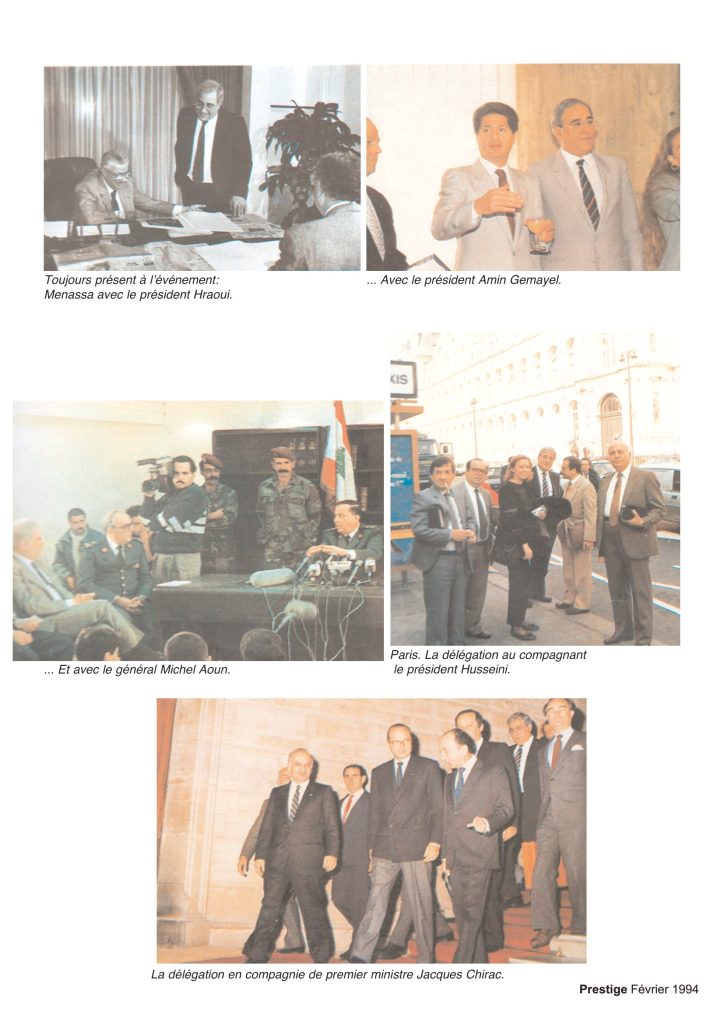
A career rich in eclecticism. Menassa has held a number of positions, including editor, editorial consultant, director of television newspapers, correspondent for various foreign media, university lecturer and president of the International Advertising Association-Lebanon.
Menassa to Khrushchev: “You’re more of an imperialist than I am”.
It was the inauguration of the Aswan High Dam; Khrushchev greeted the press. As I named myself to him, he smiled: “It’s obvious you come from an imperialist country”. I retorted no less peremptorily: “Comparing height to weight, you’re more of an imperialist than I am”. Khrushchev, who loved to gossip, burst out laughing as he pinched me… A certain Musslimov, cultural attaché at the Soviet Embassy in Beirut, told me about another bit of humor from the champion of de-Stalinization. Nasser, Abdul Salam Aref and Abdallah Sallal were in talks with Khrushchev in the middle of the Red Sea. The Iraqi leader Aref was looking for Soviet financial support. At one point, the Russian leader got carried away, accusing him of carrying out summary executions of communists in the streets of Baghdad, a fact which was in fact true. The clumsy Aref replied: “Since we’re in power, we’re the elite”. Khrushchev immediately replied: “There’s a proverb from Uzbekistan that says ‘gold sinks in the water and garbage floats’. To save the situation, Nasser laughed, imitated by the other negotiators.
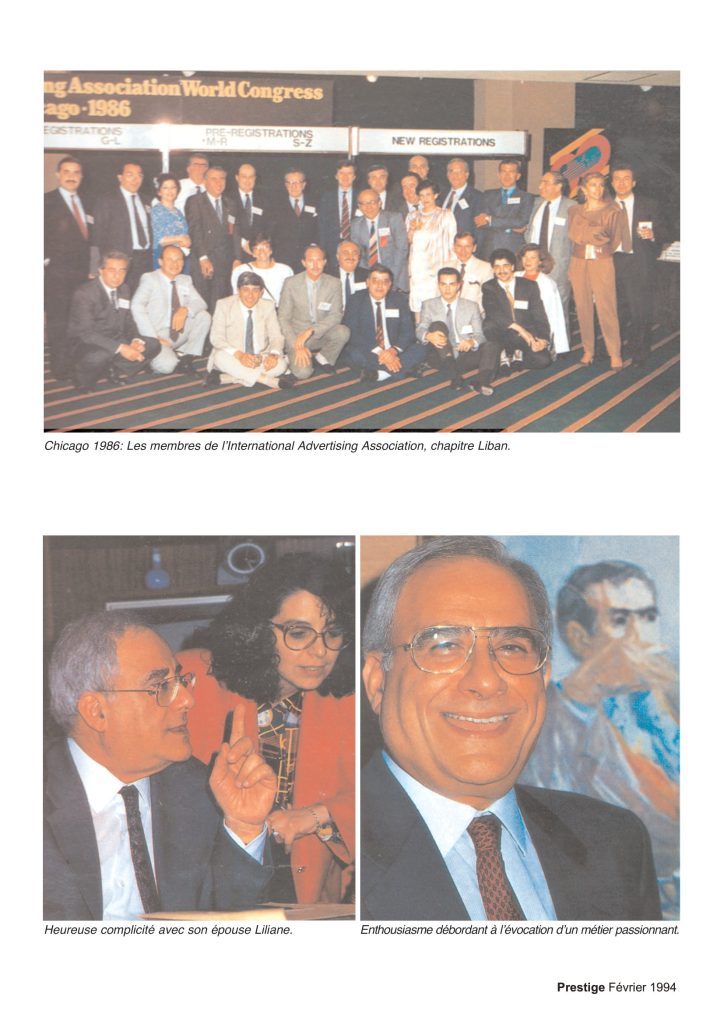
In the U.S., I met President Johnson through a diplomat, and attended the decoration of G.I.s returning from Vietnam in the presence of war veterans. The only civilians present were President Johnson, Mac Namara, Secretary of Defense, and myself. The journalist is the public’s sense organ. Menassa’s motto. A successful career in journalism requires presence of mind, impetuosity and a love of the craft. It is essential to be present at the Event, to assimilate it and report it faithfully in all its scope. Therein lies the greatness of the job. Menassa is first and foremost a man of information. Television continues to tempt him, he admits. As a history buff, he promises us a political and historical program on the scale of his dreams.
CURRICULUM VITAE. Born in Beirut on February 14, 1936.
Secondary studies at Collège Notre Dame de Jamhour.
Law studies at Saint Joseph University, Beirut.
1957/1959: Editor, “L’Orient” newspaper.
1960/1970: Director of Arab and French television news,
English, at the Compagnie Libanaise de Télévision.
1960/1967: Founder and Director of the Centre National du Cinéma at the Ministry of Information.
1967/1971: Program Director at Radio-Liban.
1970/1972: Correspondent for the American television network A.B.C.
1971/1973: Director of Média Press, managing director of the newspapers “L’Orient-Le Jour” and An-Nahar.
1967/1976: Correspondent for Radio Monte Carlo.
1974/1980: Vice-President of the International Advertising Association, Lebanon chapter.
1980/1983: President of the International Advertising Association, Lebanon chapter.
1970/1986: Lecturer at the Faculty of Information
and Documentation of the Lebanese University.
1978/1983: Producer of a weekly political program on Lebanese Television, entitled “Cette semnaine”. Since 1973: Director of “L’Orient-Le jour”.
Since 1973: Correspondent for “La Suisse” newspaper.
Since 1981: Chairman and CEO of “Editions L’Orient-Le Jour”.
Since 1981: Lecturer at the Faculty of Management, at the Faculty of Letters and at the Faculty of Economics.
of Human Sciences at “L’Université Saint-Joseph”.
Since 1983: Vice-President of the International Advertising Association, Lebanon Chapter.
Advisor to the Syndicat des Rédacteurs.
Member of the Syndicat de la Presse.
